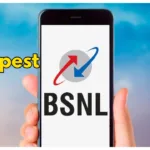In its 2014 manifesto, the Bharatiya Janata Party pledged to revolutionize India’s healthcare landscape, promising a new health policy and universal health coverage. Fast forward to today, and the outcomes of initiatives like Ayushman Bharat and the establishment of new medical colleges under the Modi government’s tenure are under scrutiny.
Ayushman Bharat
The Pradhan Mantri Jan Arogya Yojana, launched in 2018, aimed to provide health insurance up to Rs 5 lakh per family annually. However, statistics reveal a stark reality: private hospitals enrolled under the scheme are admitting fewer patients compared to government-run facilities.
Maruti Suzuki Swift 2024: Booking, features, launch date and price
2024 Bajaj Pulsar 125: Powerful bike with powerful updates!
Even during the Covid-19 pandemic, only a small fraction of eligible patients received free treatment, highlighting the scheme’s limitations.
National Health Policy
The shift towards an insurance-based healthcare model, as outlined in the National Health Policy of 2017, emphasized the need for increased government spending on public health.
Despite a rise in health expenditure as a percentage of GDP, the allocation to the health ministry in the Union budget remained stagnant. Out-of-pocket expenditure continues to burden patients, reflecting the challenges in providing affordable healthcare.
Challenges
While the Modi government has made strides in establishing new All India Institutes for Medical Sciences (AIIMS) and expanding the number of medical colleges, staffing shortages plague many newly established institutions. Shockingly, a significant number of medical colleges fail to meet basic attendance requirements, exacerbating the strain on healthcare infrastructure.
Malnutrition
Despite efforts to address malnutrition, recent surveys indicate concerning trends among Indian children. While some indicators show marginal improvements, the promise of full vaccination coverage for children and pregnant women remains unfulfilled.
Investment in Alternative Medicine
The government’s emphasis on alternative medicine, including Ayush, has seen increased funding. Additionally, the launch of telemedicine services aims to enhance healthcare accessibility. However, concerns regarding the authenticity of teleconsultations and the efficacy of disease control programs persist.
Unmet Promises
Critical promises, such as ending diarrhoea and eliminating tuberculosis, remain unfulfilled. The delay in implementing national disease control missions underscores the complexity of addressing public health challenges.
Conclusion
while the past decade under Modi’s leadership has witnessed significant healthcare initiatives, challenges persist in achieving comprehensive and equitable healthcare access for all.




